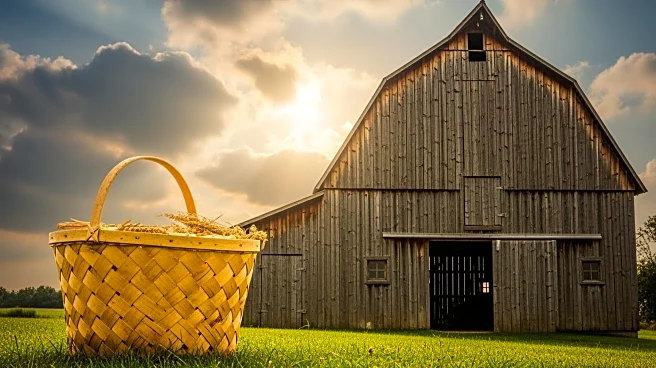What's Happening?
Iowa farmers are facing significant challenges due to rising costs and new international trade policies. Dave Mulhbauer, a fifth-generation farmer, highlights the increased expenses for equipment and fertilizer, which have been exacerbated by tariffs.
These factors are creating razor-thin profit margins for farmers. Additionally, the lack of markets for selling soybeans and the plan to import beef from Argentina are further impacting farmers, potentially pushing them out of their jobs. Mulhbauer emphasizes the pride in generational farming and the fear of losing this tradition due to these economic pressures.
Why It's Important?
The challenges faced by Iowa farmers have broader implications for rural communities and the agricultural sector. The economic strain on farmers affects local economies, as the money generated from farming has a ripple effect on various aspects of community life. The importation of beef from Argentina could undermine local beef producers, leading to job losses and economic instability. These developments highlight the need for supportive trade policies that protect domestic agriculture and sustain rural economies.
What's Next?
Farmers like Mulhbauer are advocating for changes in trade policies, including addressing country of origin labeling, to better support domestic agriculture. The agricultural community may push for policy reforms to ensure fair competition and market access. Stakeholders, including policymakers and agricultural organizations, are likely to engage in discussions to find solutions that protect the interests of U.S. farmers and rural communities.
















